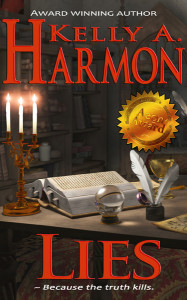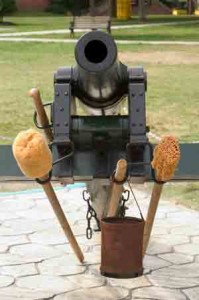Friday, December 13th, 2013  I’ve been traveling. I’ve been traveling.
Last week it was a convention and this past week it was out of state for a friend’s book launch.
Since I don’t know whether I’m coming or going, I figured we’d do a little “best of” the writing prompts this week.
In honor of Friday the 13th, you could revisit the Attack of the Phobias Writing Prompt.
Here’s one for poets: Structured Poetry, The Tanka
Here’s a writing prompt about collections: What do your characters collect?
Writing Prompt: Lost
For something unthemed, you might try the Random Words Writing Prompt.
Have Fun!
Friday, September 20th, 2013  Old habits die hard. Old habits die hard.
It’s a bit of cop out here to rely on tired aphorisms, but it gets my point across succinctly.
A change of habit–getting out of one’s rut–can take a monumental effort of strength and will. Creating new habits can take the same. (New Year’s resolutions, anyone?)
But from a fiction writing standpoint, they offer so much fresh material–so much potential for a character to grow and experience–that it might be worthwhile to add it to your Writer’s Toolbox. (You may prefer, to do as I do, and add it to your arsenal instead. 🙂 )
Consider a character with an ingrained habit. Perhaps every day on his way to work, he walks three blocks on Franklin Street, catches the Number 9 bus which takes him downtown, gets off at the industrial center and takes the company taxi into the plant.
What if whether by chance, fate or choice, he’s late getting out of the house. He misses the Number 9, and has no choice but to take the Number 11 instead? Eleven will drop him off at the industrial center, but not before first driving to the docks to let off folks who work around the Harbor. It will make him 30 minutes late, but it’s better than waiting another 45 minutes for the Number 9 to come back around.
Your character’s routine is entirely off. What will he experience along this route? Maybe it makes him change his point of view about something. He decides to make a life change. Or maybe the Number 11 bus gets hijacked. Either way, he’s out of his comfort zone, and something new–for better or worse–is about to happen.
Here’s Your Prompt:
- Write a story in which your main character is forced to abandon his or her habit. What happens?
- Write about a character who deliberately changes his or her routine, hoping for the better. Make things worse for him or her.
- Write a poem about change or habit. What are the emotional repercussions?
- If you journal, write about something you’ve changed for the better, or something you changed for the worse. If worse, tell how you alleviated the new problem. If better, relate the steps you took to maintain it.
Good Luck!
 |
Have you read Lies?
The Queen lies dying, and the mage-physician holds the key to her health, but he doesn’t quite know how to use it. The Book of Lies has the capacity to heal, if only Beresh can write the proper words. But only a few pages remain in the book, and if they’re used before the queen is healed, she won’t be the only one to lose her life!
Short-Listed for the Aeon Award.
$2.99 at Amazon.com | $2.99 at Barnes and Noble |
Friday, September 13th, 2013  September is National Preparedness Month. Since I work for a government agency, we’re getting repeated reminders to: September is National Preparedness Month. Since I work for a government agency, we’re getting repeated reminders to:
- Stay Informed
- Make a Plan
- Build a Kit
- Get Involved
…all with the usual hype and rhetoric.
(I’m all for being prepared, btw, I just don’t think it should be a crazed, one-month endeavor. Shouldn’t you be prepared all of the time?)
I don’t know if it’s related to Preparedness month, but the local constabulary hijacked our public parking lot Monday morning to hold some kind of drill or training session. Most had on helmets and were holding those clear, riot-control, body shields.
All I could think of on my way out to lunch was, “Time to speed! Floor it!” With all the local police tied up playing war, there couldn’t have been a better time. I wish I could have laid down some rubber on the way out of the parking lot.
Here’s Your Prompt:
Good Luck!
Friday, July 12th, 2013  I’m getting ready for vacation. I’m getting ready for vacation.
Besides my computer, the one thing I always take with me is my camera. So, I’m charging batteries, cleaning accessories, and cleaning off data cards (Hello, Christmas photos! That’s where you are!)
I take a lot of snapshots no matter where I go.
And I’m terrible about cleaning off the data cards…which is why I have so many of them. I tend to keep taking pictures until they’re full, and then rush in a mad scramble to get them cleaned off before the next event. So, I buy extras. And now they’re all full, too.
I know some people who clean them off right away, tossing the blurries and labeling the people. I’m rarely that organized. (I’ve got better things to do! Don’t you?)
By the time I get to the photos, I’m often surprised by what I see on the camera. Not just the event, but the expressions, the feelings, the emotion.
Some good story stuff there.
Here’s Your Prompt:
- Open a photo album to a random snapshot. Write the story of what’s happening. If you journal, perfect. Write this moment. If you write fiction, make up a story about what you see. Bonus points if you use someone else’s photo album. (If you don’t have a photo album, use Google Images and search for “people.” Use the first photo you see.)
- Write about an autographed photo.
- Write about someone — or something –missing from a snapshot.
- Here are some story starters or journal ideas:
- In this snapshot, I am…
- It was picture perfect.
- He refused to hold still.
- “We agreed, no photos.”
- Capture this image.
- It shook the camera, and this is what we got.
- Write about light and dark, shadow and substance, frame and focus.
- Ralph Waldo Emerson said, “Nature paints the best part of a picture, carves the best part of the statue, builds the best part of the house…” Do you agree or disagree? Why or why not?
- Write about something written on the back of a photo.
Good luck!
~~~~~~~~~~~~~~~
Photo of Liberty Cap Bell Yellowstone National Park © Raymond Kasprzak | Dreamstime Stock Photos
Friday, June 28th, 2013  Most people work to earn a living. Most people work to earn a living.
So, unless you write about fabulously wealthy people all the time, I’m going to assume that your characters are working-class folk.
And even if you write fantasy, your character is going to have to make a living somehow–whether it be by herding sheep or in the castle guard–so I think you might find this useful.
For most people, work defines who they are. When you meet someone at a party, you’re inevitably asked, “What do you do?” We’re slotted into pigeonholes at first meet: he’s a computer programer, she’s a lawyer, he owns a plumbing and heating company…
This works for fabulously wealthy people who spend their time on good causes, too: She does books for a soup kitchen, he’s a doctor at a free clinic, she reads to the blind.
And like it or not, what we do for a living–or to fill the time–shapes us. We spend a huge amount of our time in pursuit of it: exposed to the politics, embroiled in projects, learning our pecking order, gaining experience both good and bad.
So knowing what your character does for a living is important–even if it’s never mentioned in the book. Because what he learned on the job is a takeaway to his life. Keep this in mind when creating new characters.
Here’s Your Prompt:
- Write a scene or a story about an important event in a person’s life…but come at it from the perspective of work: you can only reveal things as they are happening on the job.
- Write a story about a person who keeps making the right decisions at work, but keeps landing in deeper and deeper trouble for them.
- Write the scene (or an entire story) about a bitter person who’s got the dream of a lifetime–her dream of a lifetime–and how it ruined her.
- Go large on the work idea: write a story that takes place at a business. The characters can only be seen as how they act on the job – no scenes away from the workplace.
- Write a story where your main character is having trouble keeping his job. This difficulty can be central to the story or not.
- If you Journal…
- Write about the loss of your job.
- Write about all the summer jobs you’ve had, or about your favorite summer job.
- Write about your Worst. Job. Ever. (Or worst boss!)
- Have you ever been profoundly effected by someone else’s job — or job loss? Write it.
Good Luck!
Friday, April 19th, 2013 I finished reading three stories this week in which the main character died. I didn’t plan it, it just happened.
In case you’re interested, the characters are:
- Lily Bart in Edith Wharton’s House of Mirth. She accidentally committed suicide by overdosing on a “sleeping aid,” conveniently tying up the unraveling strands of her life.
- Delilah in Jennifer Roberson’s Sword Singer. Tragic and abrupt, it probably couldn’t have been handled in any other way. (Spoiler Alert: Okay, she really doesn’t die. But Roberson leaves you hanging like she does: The sword fight ends with Tiger lamenting that Del paid a very high price…and the final chapter sees him in the graveyard riding off alone. Well, what are you supposed to think?)
- Benjamin Button in F. Scott Fitzgerald’s short story, The Curious Case of Benjamin Button. (I’m interpreting this as death, but Button’s unmaking could probably be described better in scientific terms. Maybe he was simply un-born.)
Frankly, I call bullshit on principal characters who die.
(Especially when the story is first person, and the person telling it dies. But that’s a topic for another day…)
That being said, there are a lot of reasons to kill off main characters: they deserve it, they’ve lost their usefulness as a story tool, or – the best reason, in my opinion– to yank the reader’s chain. There’s nothing better than building up an awesome character and cutting short his life. It just tugs at the heartstrings of readers.
(Hello Ms. Roberson? Brava!)
Still, a character shouldn’t be killed off without good reason. And when there’s not a good reason, I call bullshit.
Benjamin and Delilah’s ‘death’ are well-justified, but I feel Wharton took the easy way out by killing off Lily. It’s convenient for her, because the story was really dragging on, and double convenient for Lily who had been cut off socially by friends and faced a woeful future of penury.
(I couldn’t wait to finish the book. If poor Lily would have defended her social position – she had the means – and discarded a bit of her pride, she would have fared much better. I don’t mind when a character makes stupid mistakes, but I can’t stand it when they make them over and over and over again. Makes me spitting mad.)
Here’s Your Prompt
Good luck!
Friday, April 5th, 2013
I got inspired by doors today.
Doors are like choices, or decisions. Prompts for action: should you open it or leave it shut? Should you step through, or remain on this side?
And there are so many doors, and an equal (if not double!) amount of choices.
What’s more, the sight of a door leaves one with the impression of what might be behind it. A set of French doors with sheer white curtains might inspire a light and airy dining area. A solid wooden door on the face of a Boston brownstone might convey upper-crust society. A green door, surrounded by ivy and flowering potted plants might imply adventure.
But the frightening aspect is that the appearance could be illusion. A giant troll could live behind the fairy door. An impoverished family — self-imploding on the fracturing nature of drug addition or alcohol abuse — might live behind the brownstone door. The French doors might conceal the dark recess of a sociopath’s hideaway.
Here’s Your Prompt:
- As you drive, or walk, down the street today, take notice of doors. Choose one which inspires you and write the story of what lies behind it.
- If you’re writing a story or a novel, make a list of all the figurative doors (choices) which your character might have to walk through. Make the list long and detailed. Choose the most horrific option for your character, and write how he or she resolves the situation. Don’t just write about the scene, show the scene: let us know how the character is feeling — and thinking — about the decision. Was it the right decision to make, despite the horror of it?
- If you journal, or write memoir (or even family history) write a story about when you — or someone else — literally stepped through a door. Were your expectations met or not? Were you surprised by the situation you found behind the door? How did you feel about what happened?
- If you write poetry — make a list of doors. Describe them: their color, their surroundings, their ornamentation. Decide what lies behind each door. Write a poem about the most interesting one, or, write a poem about all of them.
Good luck!
~~~~~~~~~~~~~~~~~~~~~~~
Photo © Colleen Coombe | Dreamstime Stock Photos
Friday, March 29th, 2013 It’s been a while since we’ve done a prompt dedicated completely to poetry, so I thought we’d start there this morning.
Writing poetry the tanka way dates back nearly 1,200 years. The subject matter usually deals with nature and the seasons, or very strong emotions. It’s highly structured.
I like all kinds of poetry, but the structured kind holds a certain appeal to me because it’s often like fitting a puzzle together — and I really like puzzles. The “pieces” are the rules of the poem, usually a syllable count, but sometimes there can be others.
For example, the tanka is much like a haiku (I’ve a prompt about haiku, too) in that it requires a certain number of syllables and lines. But to be true to itself, the tanka must also use a simile, a metaphor and a personification.
Some definitions*:
| simile: |
a figure of speech comparing two unlike things that is often introduced by like or as (as in cheeks like roses) |
| metaphor: |
a figure of speech in which a word or phrase literally denoting one kind of object or idea is used in place of another to suggest a likeness or analogy between them (as in drowning in money) |
| personification: |
attribution of personal qualities; especially : representation of a thing or abstraction as a person or by the human form |
Merriam-Webster didn’t provide an example of personification, so here’s one from Toni Morrison in her book Love: A Novel:
“Pimento eyes bulged in their olive sockets. Lying on a ring of onion, a tomato slice exposed its seedy smile . . ..”
The other rules of the tanka are:
- It must contain five lines
- The first line contains 5 syllables.
- The second line contains 7 syllables.
- The third line contains 5 syllables.
- The fouth line contains 7 syllables.
- The fifth and final line contains 7 syllables.
Here’s my first try:
Waves crash like boulders…
“All hands on deck,” Captain cried.
“We’re lost,” the mate sobbed.
Fierce wind shears the mast in twain–
We are stone, sinking to death
It needs work, but it’s a start.
Here’s Your Prompt:
Write a tanka!
Suggestions: Think of your idea first and write the simile, metaphor and personifications without worrying about the syllable count. Once you’ve laid this groundwork, massage your passages to fit the structure. This could mean swapping out words or even adjusting the lines in the poem to fit the pieces.
Good Luck!
~~~~~~~~~~~~~~~~~~~~~~~~
* All definitions are from Merriam-Webster on line dictionary.
Friday, March 22nd, 2013  It’s that time of year: I’m getting bombarded by realtor mail. It’s that time of year: I’m getting bombarded by realtor mail.
It seems like that once the crocuses start to pop up in this neck of the woods, the realtors are out like vultures, looking for new prospects. I’m not in the market for a new house. I’m not interested in selling my current one.
Dear Realtors: please leave me alone.
Nonetheless, the topic is interesting for a writing prompt.
True Story: In the spring, when I was about two, my parents moved into a new house. Only a few days after the moving truck departed and they were busy with ripping up carpet and applying fresh paint to all the rooms, a knock sounded at the front door. My Mom opened it to find a young man, fresh on leave from the army. He’d come home to see his parents, but his key wouldn’t work in the door.
Imagine his surprise to learn that his parents had moved out, leaving him no forwarding address! (I’ve always wondered what happened to this young man.)
Here’s Your Prompt:
- Write about the serviceman who comes home for a visit, but finds his family packed up and moved away.
- Imagine this: a man is selling his house. He’s approached by an old woman soon after he puts it on the market. She doesn’t want to buy the house. She explains that she’s a former owner of the home tells him about something really horrific that happened there once. Write that story.
- Page through the real estate section of your local newspaper (or find one on line for some place abroad). Choose a home, castle, houseboat, etc. that catches your eye. Write a story about it.
- If you want to write poetry, write a poem about the feelings the image evokes.
- If you journal or are writing your memoirs, write a story about a place where you’ve lived. Take care in providing rich detail (without resorting to purple prose!) and how you feel about the place. Was it good or bad? Do you have happy memories or sad? Involve all five senses when telling the story
Good luck!
~~~~~~~~~~~~~~~~~~~~~~
Image © John Hix | Dreamstime Stock Photos
Friday, February 15th, 2013  Question: Where do ideas come from? Question: Where do ideas come from?
Answer: They’re all around us.
But sometimes, they’re difficult to “see.” There’s a lot of visual stimulation around us, whether we’re visiting someplace new or sitting in our own writing spaces surrounded by the familiar.
Today’s writing prompt is a challenge. I want you to spend some time focusing on the objects around you and come up with a story (or a poem, or a memoir/journal entry, etc.) about one of the objects you see. Don’t let your eyes flick past the things you’ve viewed a million times a day. Instead, choose one to focus on, and think about some possibilities:
- How did you acquire it? Was it given to you by a friend? What if someone else had given it? (An enemy? A teacher? An alien? What kind of story would that make?
- How was it manufactured? What if it were made of something else? What if it had additional properties such as motion, magnetism, solubility, invisibility?
- Who owned it before you did? Your brother? Your cousin? Henry the VIII?
- Imagine this item in another location. What significance does the new location bring to the object? (Does it give you an idea for a story?)
Now…kick it up a notch by letting your imagination run wild. Start with the focus object, and continue to ask questions of it until the object of your study is no longer what you focused on. Instead of asking the “usual” questions, take a tangent… What does the color of it remind you of? How about the shape, or the texture? Maybe the gold-rimmed dinner plate which used to belong to your grandmother makes you think of the moon. Write a poem about the moon, or a story about a colony on the moon, or a fantasy about the moon’s pull on a witch’s spells.
Maybe the blue lamp is the same color of the ocean on a rainy morning. It makes you think of a secret at a beach house, a romance on an island, or a pirate shipwreck in Boston Harbor.
You get the idea.
Write that story (poem, vignette, journal entry, etc.) without the focus piece ever being mentioned in it.
Here’s Your Prompt:
- Easy: Write something (a poem, a short story, a scene, etc.) using your object of choice, coupled with some of the questions outlined above (or more of your own!) Make certain that item is the focus of the piece.
- Challenging: Start with a focus object, but transform it into a solid idea. Write something which was inspired by your focus piece.
Good luck!
|
Writers - Maryland Writer's Assn.
|
 I’ve been traveling.
I’ve been traveling.

 September is National Preparedness Month. Since I work for a government agency, we’re getting repeated reminders to:
September is National Preparedness Month. Since I work for a government agency, we’re getting repeated reminders to: I’m getting ready for vacation.
I’m getting ready for vacation. Most people work to earn a living.
Most people work to earn a living. 
 It’s that time of year: I’m getting bombarded by realtor mail.
It’s that time of year: I’m getting bombarded by realtor mail. Question: Where do ideas come from?
Question: Where do ideas come from?